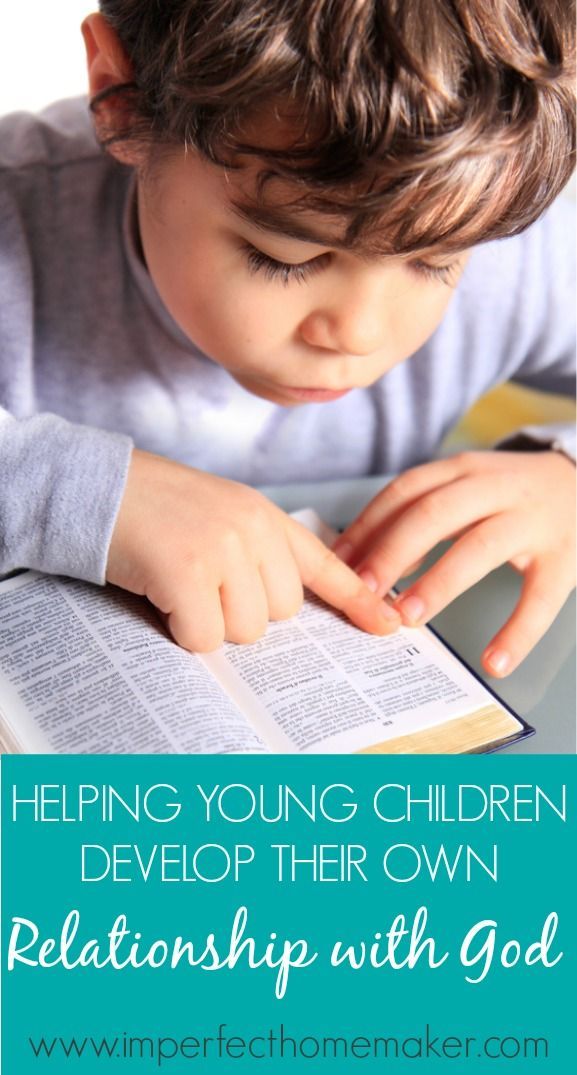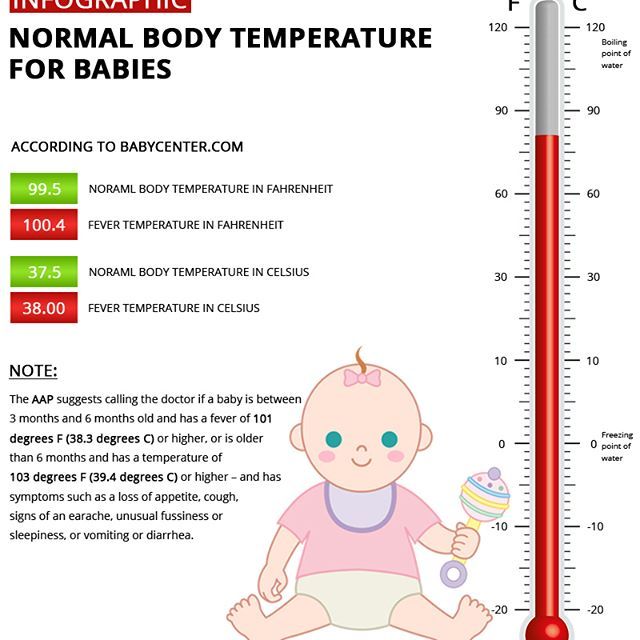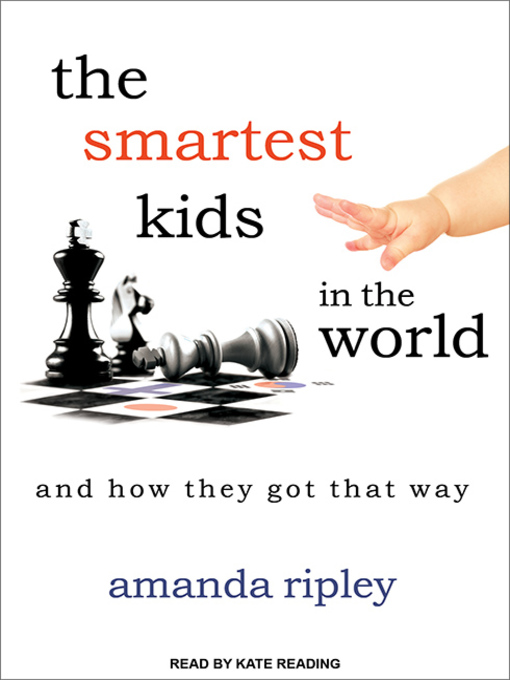How to teach your child the bible
Tips for Teaching Kids the Bible
By Brandon D. Smith and Jeremy Writebol
Share:
The Bible can seem intimidating. Its mere size and vocabulary can be a barrier even to the most learned adult picking up and reading it. When you include the scope of literary genre and complexity of spiritual dynamics as a whole, the Bible seems vastly unapproachable to just about anyone, but especially to preteens and younger.
As great as those obstacles seem, the Bible and its message is not something that should be avoided until a person reaches adulthood. We don't simply need more Bible storybooks (though they are helpful, as we will note later)—we need kids actually reading God's Word in its full form.
At the very center of Jewish family life was the importance of teaching children the Bible. The call to Israel was to take the Word of God and, "Repeat them to your children. Talk about them when you sit in your house and when you walk along the road, when you lie down and when you get up" (Deut. 6:7). For Jewish families, being faithful to God meant teaching their children the Bible and all that it teaches. Passing the stories of God's greatness and goodness from one generation to the next were paramount to ensuring trust and faith in God. For example, Israelites who weren't even born during the Exodus still identified with the story of God's work there as it was passed down first by oral tradition, and then in the pages of the Hebrew Bible itself.
All of this to say, the people of God have always believed that the Bible is something we should teach and impart to our children. Jesus taught that unless you become like a little child, you cannot enter the kingdom of God. He furthermore welcomed little children to be near and be blessed by Him (Mark 10:13–16). Taking Jesus's lead, then, we should be sure to teach our children the Bible so that they can know Jesus and be rescued from their sin by Him. We should be carrying on His example of pointing even the little children to Him.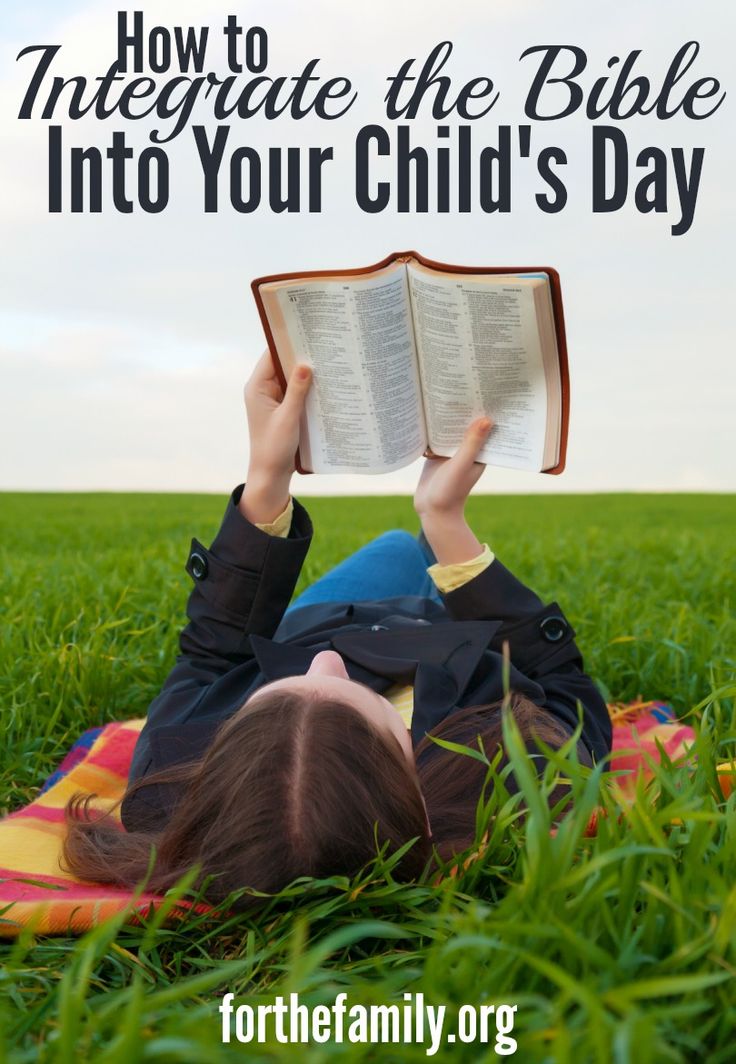
Tell Children the Bible Stories
While some may pause at engaging the Bible because it seems so difficult, often we are surprised by how plain the Bible's stories are. By God's grace, His revelation to us is both simple enough that a child can engage it, yet profound enough that the most educated adult can still ponder and grow from the Bible. The Bible was written largely in historical reports, biographies, poetry, and letters to common people. It was never meant to confuse people.
Woven within all of these genres, the primary format of the Bible is storytelling. The biblical writers were committed to telling the story of God and His people. Instead of giving just data and facts, the biblical writers told vivid and wonder–inducing stories. They told of a great Creator God who made all things, including us, for His glory. They told of God's power and His faithfulness to His people. They told of God's unending love and His justice against evil and sin. They were constantly drawing on past stories and then-modern illustrations to bring their stories to life.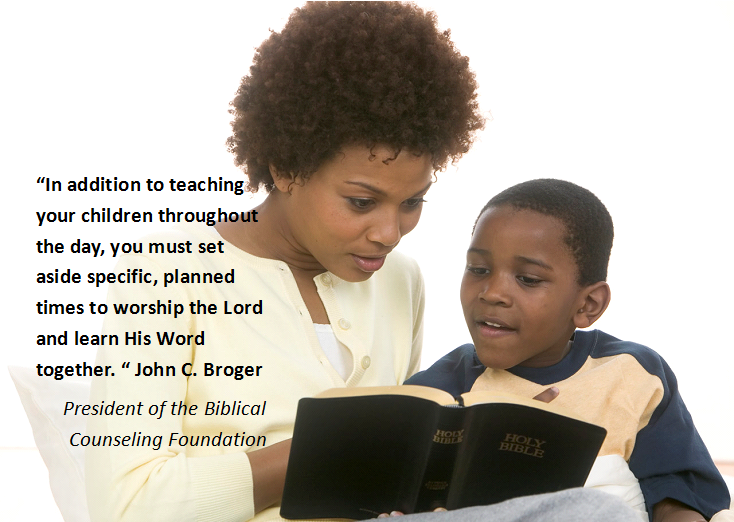 The Bible stories capture hearts and imaginations by engaging our sense to hear, see, taste, and feel the life experiences of people in need of God's work to rescue them from slavery, sin, and death.
The Bible stories capture hearts and imaginations by engaging our sense to hear, see, taste, and feel the life experiences of people in need of God's work to rescue them from slavery, sin, and death.
Families today are no different; they can still teach and make their young children familiar with the Bible through telling the stories of the Bible from cover to cover. Many helpful and engaging storybook Bibles have been published recently to help equip families to teach their children the Bible stories. By using a children's story Bible, kids become familiar not merely with the content of the Bible, but also with the structure and flow of the Bible as well. However, we must help our kids graduate to the Bible itself.
Show Children the Truths of Salvation
More than just telling the stories of the Bible, children must be engaged in the truths that the drama of Scripture unfolds. It's one thing to tell a child that Jesus died on the cross. It is another profoundly important thing to explain why He died; to save us from our sin and reconcile all things broken by sin. Understanding the gospel message and being able to communicate that message from the stories of Scripture will help children respond to what God has done for them.
Understanding the gospel message and being able to communicate that message from the stories of Scripture will help children respond to what God has done for them.
A simple outline of the gospel will be useful to connect the stories of the Bible to the overarching doctrines of salvation so that children can directly respond through repentance and faith in Christ.
- God Rules. He is the creator and king over everything. The stories of the Bible demonstrate to children that God is the all-powerful King of heaven and earth.
- We Sinned. Our place in the story is our failure. We have disobeyed God. Every story in the Bible illustrates humanity's sinfulness and rebellion against God. The biblical stories show the penalty of our sins as well.
- God Provided. God has been kind, making one unique way for us to be rescued from our sin and its penalty. Even the Old Testament stories point forward to God's rescue and provision for sinners.
- Jesus Gives.
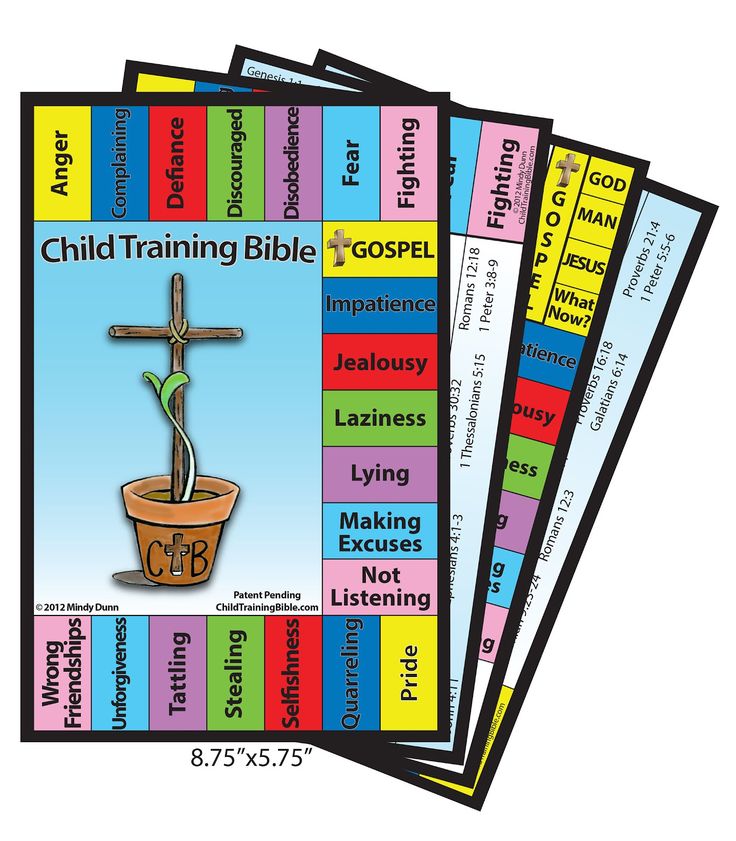 Jesus's life, death, and resurrection is the basis of our hope. He did this as a substitute in our place. The Gospels of Matthew, Mark, Luke, and John clearly retell the story of Jesus and His gift of salvation for all who believe.
Jesus's life, death, and resurrection is the basis of our hope. He did this as a substitute in our place. The Gospels of Matthew, Mark, Luke, and John clearly retell the story of Jesus and His gift of salvation for all who believe. - We Respond. The Bible can often be seen as a moral instruction book on how to live. But the moral directions can only be obeyed as a result of the grace of God. We can show children how to turn from their sin and trust in Christ, as well as showing them how God helps us to obey Him in all things.
Memorize Key Bible Verses
Kids have an incredible capacity to remember and lodge verbatim truth in their minds. We can help children encounter the Bible by encouraging and equipping them to memorize key verses in the Bible. These key verses will point them to the truth of the gospel, equip them to obey God's commands, and enable them to live for His glory in their day-to-day lives. By memorizing Scripture, kids can take the wisdom of God's Word and be enabled to live for God's glory. Let's help them learn this truth: "I have treasured your word in my heart so that I may not sin against you" (Ps. 119:11, CSB).
Let's help them learn this truth: "I have treasured your word in my heart so that I may not sin against you" (Ps. 119:11, CSB).
Read God's Word Regularly
If nothing else, the simplest and most efficient way to help children engage, apply, and love God's Word is to read it with them regularly. By sitting together as a family and reading and discussing the Bible daily, you will, over time, build a familiarity with the Bible and a growing love for God through His Word.
We must remember that God promises that His Word will accomplish what He has intended for it to do: "Just as the rain and snow fall from heaven and do not return there without saturating the earth… so my word that comes from my mouth will not return to me empty, but it will accomplish what I please and will prosper in what I send it to do" (Isa. 55:10–11, CSB). This promise should encourage and motivate us to make sure our children hear, read, and understand the Bible. God's word is sufficient to save, change, and grow our children to love Him forever!
Help! I Don’t Know How to Teach My Kids the Bible
This article is part of the Help! series.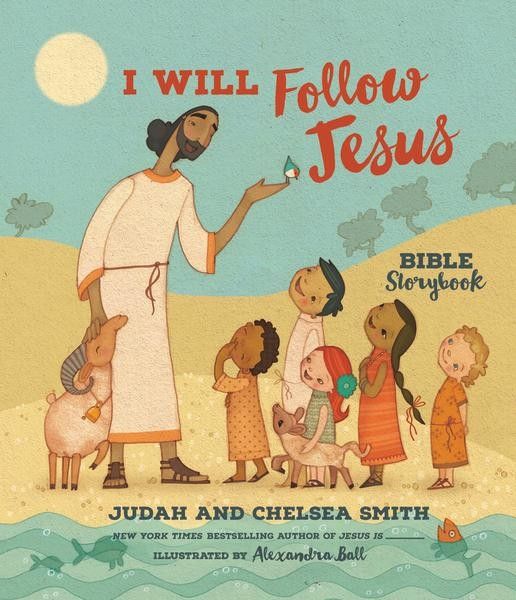
Sowing a Love
How do we sow in our children love for the word that has become a lifeline for us? How do we communicate in a way that prepares our children for a life of faith and faithfulness? How can we teach them when we feel so inadequate in our own understanding? These are not unique questions. Most, if not all, Christian parents have wrestled or are wrestling internally with these questions.
Psalm 78 often goes through my mind when thinking upon this subject. Asaph, the writer of this psalm, knows what he received and believed (Ps. 78:3). He also knows it is incomplete to keep this wonderful knowledge of God to himself. He must pass it on to the generation after him. Asaph says, "We will not hide them from their children but tell to the coming generation the glorious deeds of the Lord, and his might, and the wonders that he has done" (Ps. 78:4). His aim in doing this is particular: that the generations to follow might “set their hope in God and not forget the works of God.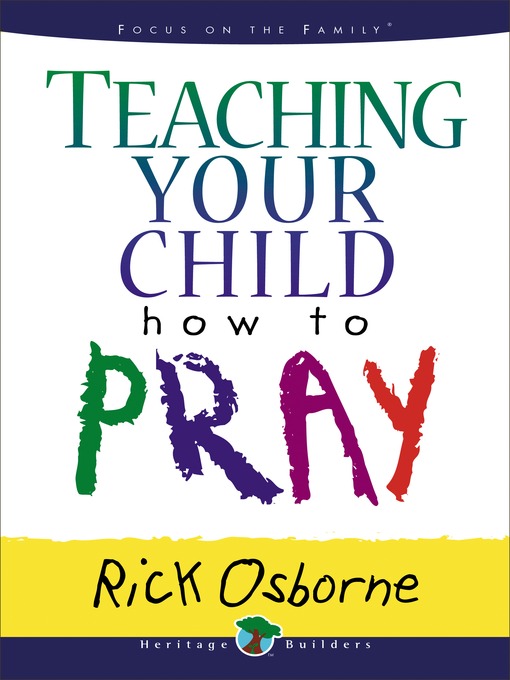 ” Isn’t this what we desire beyond all else for our children—that they might “set their hope in God”? As Christian parents, we want this story to continue through generations of our family tree to the glory of our covenant-keeping God.
” Isn’t this what we desire beyond all else for our children—that they might “set their hope in God”? As Christian parents, we want this story to continue through generations of our family tree to the glory of our covenant-keeping God.
But how do we do this when the task of teaching our children the Bible feels overwhelming?
Read, Read, Read!
It seems silly to even say it, but an unopened Bible will remain an unknown Bible. No one comprehends the pages of Scripture via osmosis. Pick up the Bible, open it, and read it with your children. This has to be the starting place. Many discuss the Bible, talk theology, and debate Christian ethics with their family, but the Bible remains closed and on the shelf. It is meant to be read. Sit the smallest children on your lap, surround yourself with the rest of your children on the couch, and read. The very reading of the word has power. God’s word does not return void (Isa. 55:11). He promises this.
Jason Helopoulos
Featuring beautiful illustrations by Rommel Ruiz, this book invites children ages 6–12 to learn that Jesus is the promised one and invites them to know him personally.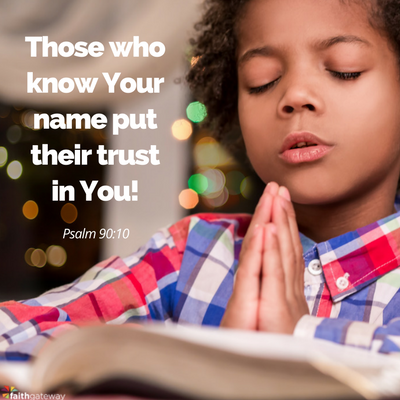
Read for Knowledge
Over time your children will develop a working knowledge of Scripture based upon what you have read with them in the Bible. Therefore, read from “the whole counsel of God” (Acts 20:27) over time. Take a book of the Bible, read a few verses each night together, and work your way through it. Then, as a family, choose a new book of the Bible to read. Through the years, your family will grow in knowledge together. This will inform your conversations with one another and your family’s walk with God.
Read helpful children’s books alongside your Bible reading. Children’s books that press home the overarching themes and teachings of Scripture prove especially helpful in developing knowledge. Consider other helpful tools for pressing home the truths of Scripture. Personally, I found catechizing my children at a young age provided a wonderful foundation for further theological discussions and formation. Many parents find it beneficial to begin book clubs with other parents and children. There is an excitement for children in reading a book (not assigned as schoolwork!) with some of their friends.
There is an excitement for children in reading a book (not assigned as schoolwork!) with some of their friends.
Read for Understanding
As your family becomes more comfortable reading the Scriptures together, begin asking questions of your children. The questions begin small and simple. I suggest two questions as helpful with young children: (1) What did you hear about God? (2) What did God say he desires from us? As they grow in age, the questions can become more complex (e.g. What is the main point of this text? What is an application you can draw from this passage? Based upon this passage, how can we pray for you tonight?). As Asaph said about his own reception of the truth, he not only heard it, but came to “know” it (Ps. 78:3). Bare knowledge is good; knowledge with understanding is better still.
Use moments the Lord provides. As Moses says to parents, “You shall teach them diligently to your children, and shall talk of them when you sit in your house, and when you walk by the way, and when you lied down, and when you rise” (Deut.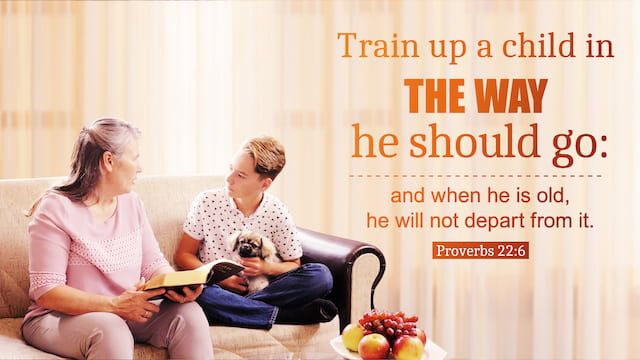 6:7). We miss too many opportunities as parents. Let’s seize them! A beautiful sunrise provides an occasion to mention God’s beauty, a fight between siblings allows us to speak of God’s grace, a messy table serves as an illustration of sin. As much as we are able, we want the Bible and its truth to infuse our family conversation. It doesn’t need to be forced; it will happen more and more as we become more and more Bible people.
6:7). We miss too many opportunities as parents. Let’s seize them! A beautiful sunrise provides an occasion to mention God’s beauty, a fight between siblings allows us to speak of God’s grace, a messy table serves as an illustration of sin. As much as we are able, we want the Bible and its truth to infuse our family conversation. It doesn’t need to be forced; it will happen more and more as we become more and more Bible people.
Know That You Don’t Need to Have All the Answers
Relax and know that you don’t need to have all the answers. My four-year-old son asked one evening, “Daddy, if Eve had eaten from the tree but not Adam, would all people have fallen?” What a great question! But it didn’t feel like it at the time, because I wasn’t ready. I didn’t know the answer on the spot. And you know what? That was alright. His faith wasn’t dashed, his spiritual life wasn’t stunted, and his respect for me wasn’t diminished. I could simply say, “I don’t know, son. That is a fabulous question. Can I do some research and answer your question later this week?” His little four-year-old mind was thinking through an issue I never had. That is a blessing in disguise! You don’t have to know everything—no parent does, no matter who they are. We are all theologians in process. Each of us seeks to grow in biblical knowledge. And many times, our children press us towards that growth.
Can I do some research and answer your question later this week?” His little four-year-old mind was thinking through an issue I never had. That is a blessing in disguise! You don’t have to know everything—no parent does, no matter who they are. We are all theologians in process. Each of us seeks to grow in biblical knowledge. And many times, our children press us towards that growth.
God gifted his word to his people. It is a means of grace, not a burden.
Be Patient and Play the Long Game
Don’t do too much too early. Be patient with yourself and with your children. Don’t set too high of expectations for your Bible reading or study together. Too often we make the goal unreachable and set ourselves up for discouragement. Idealism often kills good things before they begin. Start slow and start small. Read a proverb each night together or memorize one bible verse a month. We are raising our children over the course of years, not days. As parents, we can afford to invest slowly for the long run.
Model the Blessing
God gifted his word to his people. It is a means of grace, not a burden. Model this before your children. It will be reflected in your attitude, your own sense of joy in reading, how you talk about the Scriptures, and even the priority you make the Bible in your own life. I remember a dear pastor friend reflecting upon his own love for the Bible. He remembered from his childhood that he would walk by his father’s bedroom each evening and see the comforting scene of his father propped up in bed, with his head resting on the headboard, reading an open Bible. His hero loved this book, so he decided to read and grow in love for this book too.
Have Fun Growing in Knowledge as a Family
The Christian life centers upon a God who created as an overflow of love. Creation contains the joys of chocolate cake, the smoothness of silk, and the laughter of children. You and your children have the freedom to enjoy and even be creative in learning about God and his word together.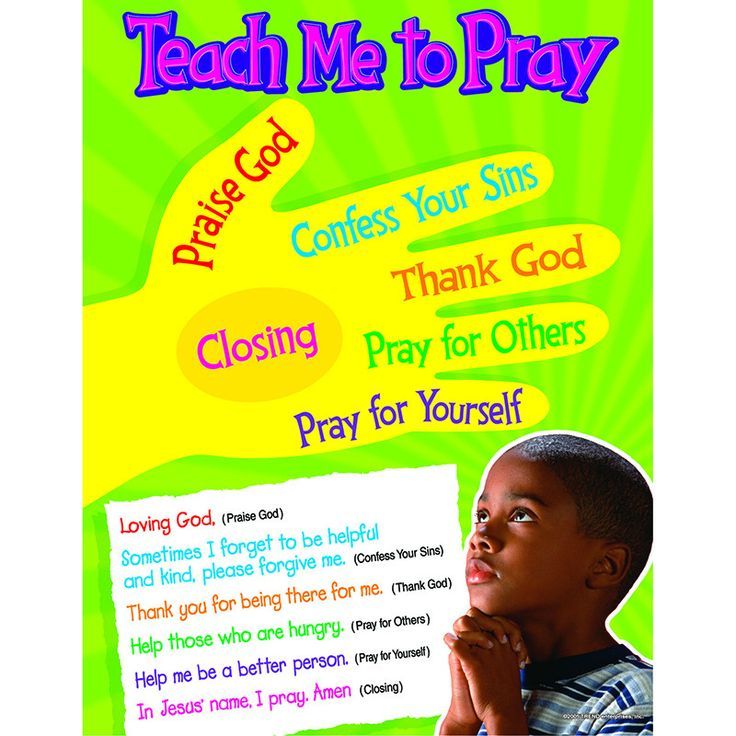 Write biblically informed poems, act out scenes of the Bible, sing the Psalms. My family has recently enjoyed memorizing Scripture together by using a service that provides temporary Scripture tattoos. If we each rolled up our sleeves, you could see the verse we are memorizing together! Enjoy God. He is meant to be enjoyed even as he is meant to be worshiped.
Write biblically informed poems, act out scenes of the Bible, sing the Psalms. My family has recently enjoyed memorizing Scripture together by using a service that provides temporary Scripture tattoos. If we each rolled up our sleeves, you could see the verse we are memorizing together! Enjoy God. He is meant to be enjoyed even as he is meant to be worshiped.
Keep Your Eyes on Jesus
Above all, teach your children the Bible with your eyes on Jesus. We want them to fall in love with our Savior. All our teaching has this as its purpose. The goal isn’t for them to win a Bible quiz contest or look the best in Sunday school. We long for them to cherish Christ as we do. Yet, we can’t force it. We can’t make it so. We can’t guarantee it. All we can do is teach what we know in the best way we know how and leave their souls in the hands of our trustworthy Father. I often pray for the children in our church, “Father, make our children your children.” Keep your eyes on Jesus, even as you seek to point their eyes to Jesus.
Jason Helopoulos is the author of The Promise: The Amazing Story of Our Long-Awaited Savior.
Jason Helopoulos (ThM, Dallas Theological Seminary) serves as the senior pastor of University Reformed Church (PCA) in East Lansing, Michigan. He regularly contributes to Tabletalk, the Gospel Reformation Network, the Alliance of Confessing Evangelicals, and the Gospel Coalition. Jason has authored books such as Let the Children Worship and A Neglected Grace: Family Worship in the Christian Home. Jason and his wife, Leah, have two children, Gracen and Ethan.
Help! I’m Struggling with the Doctrine of Predestination
Joel R. Beeke, Paul M. Smalley
October 19, 2020If you have struggled with this doctrine, you are not alone. Even Jonathan Edwards once wrestled with it before he became fully satisfied with it.
Even Jonathan Edwards once wrestled with it before he became fully satisfied with it.
Help! I Want to Read the Bible, but I Find It Boring
Katherine Forster
December 14, 2019We won’t love God’s word until he helps us to do it. And the beautiful thing is that he will.
Help! I Keep Losing My Temper
J. Alasdair Groves
March 19, 2019Losing your temper means you’ve placed anger in the saddle and you are now galloping along at its command.
Help! My Kids Keep Talking Back
William P.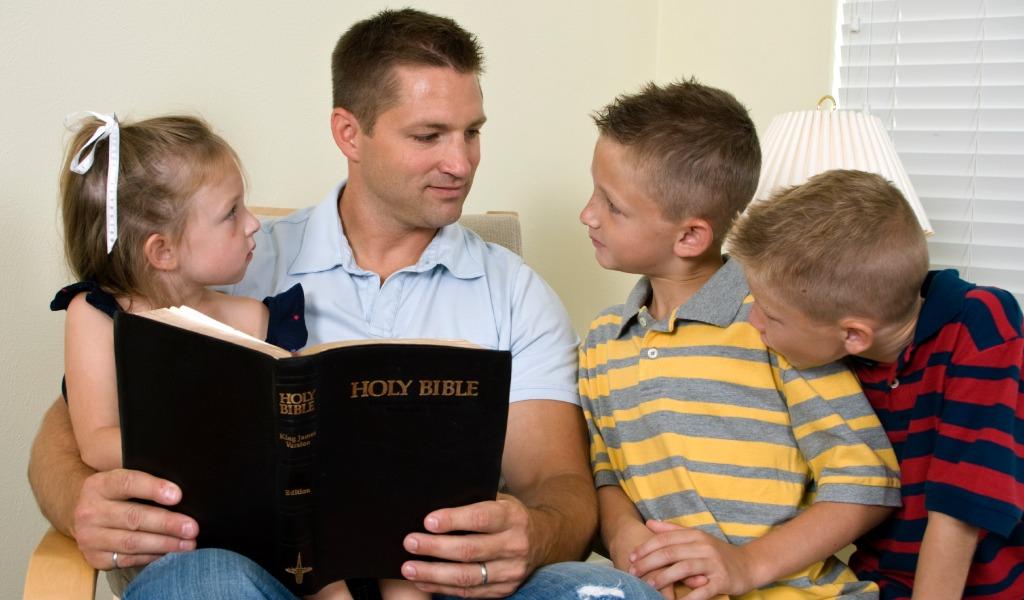 Smith
Smith
When you’re more concerned for your child than for their impact on you, then you’re in the right frame of mind to help them. How do you do that?
Crossway is a not-for-profit Christian ministry that exists solely for the purpose of proclaiming the gospel through publishing gospel-centered, Bible-centered content. Learn more or donate today at crossway.org/about.
3 Ways to Teach Children the Bible
Three of my grandchildren recently made their annual summer visit to our hot lands. They also took their parents with them as companions, which was quite nice.
Whenever two or three of my grandchildren gather around me for more than 24 hours, I take the opportunity to do one of two things: rehearse and act out a play, or open the doors of "Grandfather's Summer Bible School." The eldest of the grandchildren who came during her stay turned 5 years old, and her brothers 2 and 9months.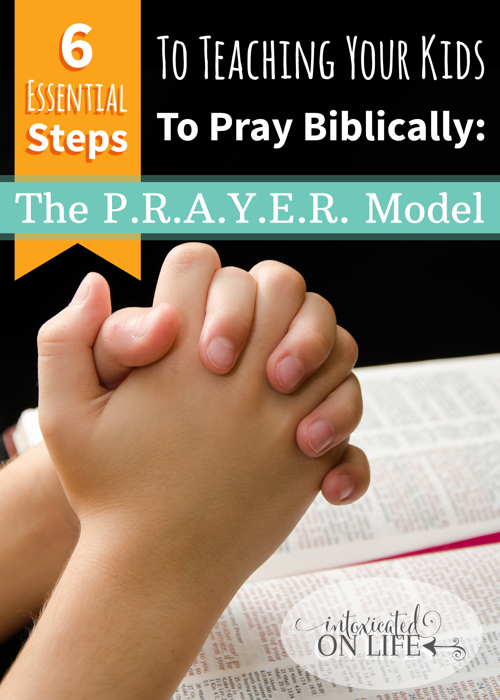 They are still too young for King Lear, so we settled on Grandfather's Summer Bible School.
They are still too young for King Lear, so we settled on Grandfather's Summer Bible School.
When they left, they already knew by heart the four faces of the cherubs (including the correct hand movements), the outline of the creation story, the basic elements of creation, and a summary of the book of Genesis. The next time they're with me, we'll work on the Exodus and I'll teach them how to sacrifice one another.
I have been teaching the Bible to young children—mostly my own—for over 35 years, ever since my oldest son started crawling. Over the years I have learned a few things. Here are three lessons for you.
Tell Bible stories
God spoke to Israel many times and in many ways (Heb. 1:1-3). He spoke the Law at Mount Sinai, spoke wisdom through the mouth of kings, burning and crushing words through the mouth of the prophets, and finally spoke Himself in His Son, the Word. The order of the books of the Bible is the order of the maturation of Israel and mankind as we grow from child bondage to adult freedom (cf.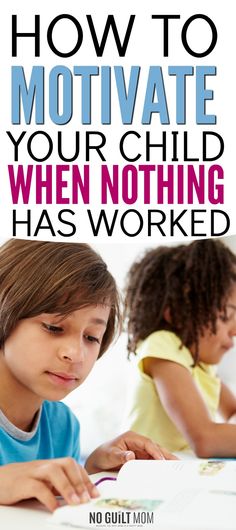 Gal. 4), from priest to king, from prophet to the full stature of Christ.
Gal. 4), from priest to king, from prophet to the full stature of Christ.
It is no coincidence that the biblical story of maturation begins with a long book of stories. This is where we start. Before we can talk, walk, or think abstractly, we study stories. Yahweh is the best parent. Even before Israel received the Torah, the tabernacle, the complex sacrificial system, the land, or the monarchy, they had stories, dramatic family stories.
God gave us stories because he wanted us to read, tell and retell, live in and through the stories. Start with them. Tell stories. They will remember them.
When my children were little, we had family worship almost every night after dinner. I opened the Bible in my lap and recounted the story. We started with Genesis and kept going until we got to the end of Acts, then we started again with Genesis and repeated the process. I can't remember how many of these cycles we went through, but I did it often because babies kept coming into the world.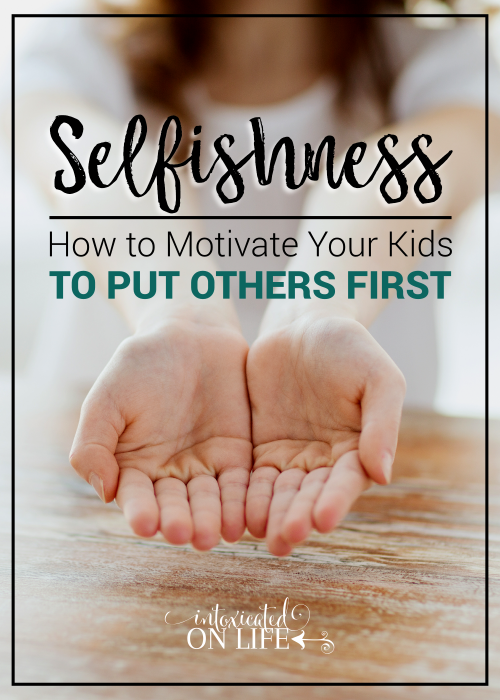 As my children got older, we studied the rest of the New Testament books and read portions of them together. But above all, however, I tried to get them hooked on the Bible by telling stories.
As my children got older, we studied the rest of the New Testament books and read portions of them together. But above all, however, I tried to get them hooked on the Bible by telling stories.
We are tempted to skim through stories to get to the moral core. We tend to ignore details in order to focus on abstract doctrinal content. Scripture teaches moral lessons, and Bible stories have doctrinal implications. We must teach our children all this. But God gave stories because he wanted us to read and tell and retell, to live in and through the stories.
So start with them. Tell stories. They will remember them.
Show them Jesus
During the 40 days between his resurrection and ascension, Jesus taught his disciples the Bible (Luke 24). He taught two disciples on the road to Emmaus and then the other 11. Luke tells us that he taught the entire Old Testament - Moses, the prophets (great and small) and the psalms. He taught "everything that was said about Him.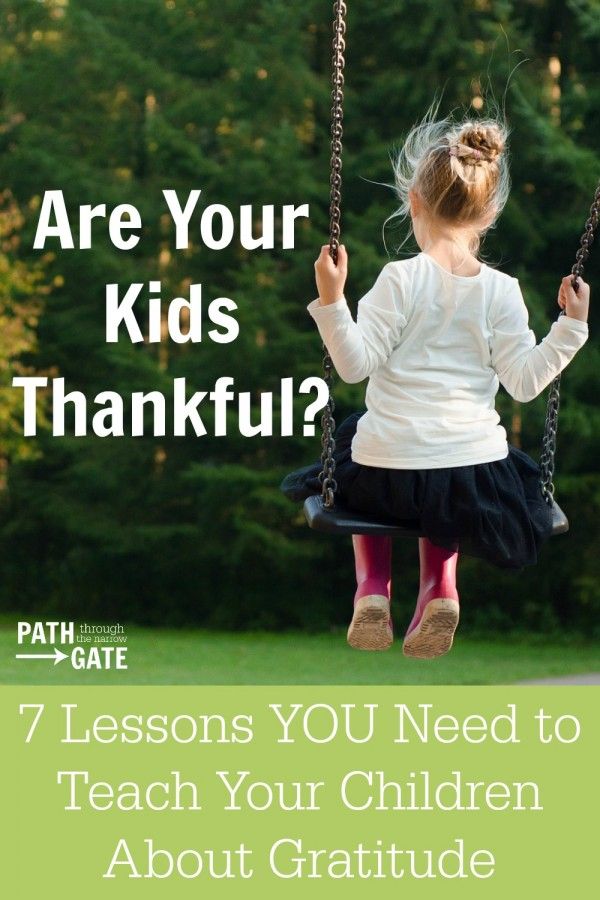 " Jesus Himself tells us that the entire Bible is about Him.
" Jesus Himself tells us that the entire Bible is about Him.
The Bible is a book of books, a great story with many little stories inside. All these little stories are connected to the big story, because all the little stories are part of the story of Jesus. These stories are pieces of a puzzle. As Irenaeus said, as soon as we put all these pieces together, we will see a portrait of a glorious, beautiful king.
All these little stories are connected to the great story because all the little stories are part of the story of Jesus.
What kind of puzzle pieces do we need? First, the characters. Show them that Jesus is better than Adam because he stands up to the devil in the wilderness when Adam failed to defeat the devil in the Garden of Eden. Show them that Jesus was attacked by His brothers, just as Abel was attacked by Cain, and Joseph was attacked by his brothers. Show them how Samson overcame at the moment of his death and how Jesus overcame on the cross. As you read about Jeremiah, the weeping prophet, remind them that Jesus also wept.
As you read about Jeremiah, the weeping prophet, remind them that Jesus also wept.
Look also for recurring events. At the beginning of Matthew, Jesus flees from a murderous king to the safety of Egypt, returns and grows up, is baptized in the Jordan, goes into the wilderness to be tempted, and then teaches the people about the Law on a mountaintop. He relives the history of Israel again: slavery in Egypt, the killing of Israelite babies by Pharaoh, the exodus and the wilderness, Sinai and the Law. If you have the courage to follow Leviticus, then keep reminding them that Jesus makes the ultimate, perfect sacrifice that brings us back to the Father.
The Bible doesn't just associate everyone and everything with Jesus. It connects everyone and everything with everyone and everything else. Noah is the new Adam and a type of Jesus. David fights like one of the judges, Hezekiah is the new David, and Jeremiah is like Moses.
I often said to my children, "Wow! This is the first time in the Bible.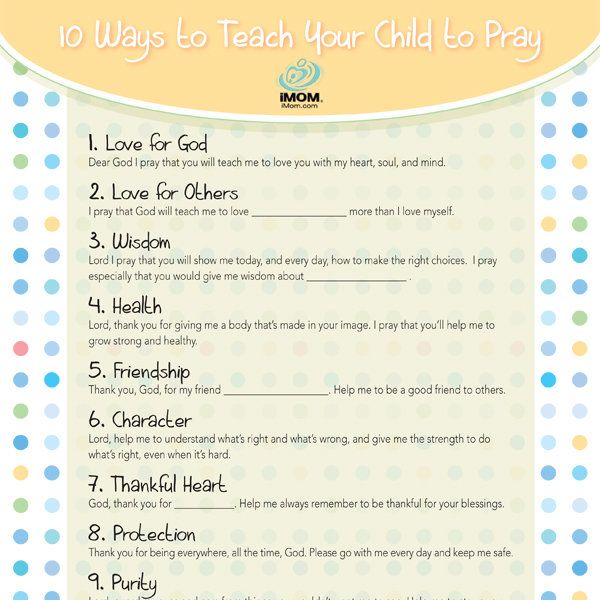 This is the first time we've seen such a character!" "Wow, someone died for the first time from a head injury," I said as I told the story of David and Goliath. "The first time someone drowned." "The first time someone almost died and came back to life." "This is the first man who met his future wife at the well." They knew it was my signal to the contrary. "No! Other people also died from wounds in the head," and they listed Sisera and Abimelech, as well as the crushed head of the serpent. "Everyone meets their future wife at the well!"
This is the first time we've seen such a character!" "Wow, someone died for the first time from a head injury," I said as I told the story of David and Goliath. "The first time someone drowned." "The first time someone almost died and came back to life." "This is the first man who met his future wife at the well." They knew it was my signal to the contrary. "No! Other people also died from wounds in the head," and they listed Sisera and Abimelech, as well as the crushed head of the serpent. "Everyone meets their future wife at the well!"
Children naturally draw parallels and stop doing so only when we wean them from it. They do not know the words "typology" or "type", but they understand their meaning. Use it.
Sing Bible Texts
A few years ago, as a pastor in Idaho, I led a church summer Bible school for young children. I wrote some songs to help them learn the principles of biblical theology. I realized late the power of singing, but now I will not even try to teach children in a different way.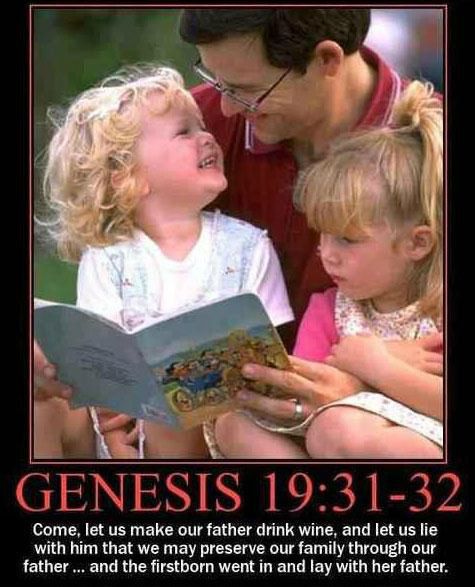 Singing or humming makes the Bible catchy and rhythmic. She imprints the Bible into the child's brain and body.
Singing or humming makes the Bible catchy and rhythmic. She imprints the Bible into the child's brain and body.
I tried to make the songs fun. I didn't want them to come out just funny. I wanted the songs to provide a foundation for Bible reading and meditation that would guide children as they grew up. I didn't want them to then dismiss the Bible as childish.
Do not underestimate what a child can learn about Scripture. They can remember more than we think and have fun doing it.
Let me give you an example. The book of Genesis begins with three falls, culminating in the great destruction, the flood. After the flood and Babylon, the story focuses on the three patriarchs who begin to renew the world by reversing the three falls. It all looks like this (bold syllables are underlined):
- A ladies Cain and sons us God's (three falls)
- WOW ! (flood; make a wide swing of the hand, as if it were a huge stream of water)
- Vavi lon
- Av raam, Eeyore kov, Jo and Abraham obeys - even if it costs him a son.
 Cain kills Abel; Jacob is Abel, who escapes from his bloodthirsty brother Esau. The sons of God mingle with the daughters of men and corrupt the world; Joseph resists temptation and feeds the world.
Cain kills Abel; Jacob is Abel, who escapes from his bloodthirsty brother Esau. The sons of God mingle with the daughters of men and corrupt the world; Joseph resists temptation and feeds the world. Select performers who sing Scripture. (Further, the author recommends a Canadian artist, which is not relevant for a Russian-speaking audience. But we can definitely recommend the Ark Church (Dnepr) or the Russian Bible Church (Moscow). The lyrics of their songs are rich in Scripture - approx. transl.)
Teach
BiblePerhaps this is the most important lesson: I learned early not to underestimate what children can learn about Scripture. They can remember more than we think and have fun doing it.
I learned that children willingly respond to the voice of their Father, on one condition - if I teach them the Bible, and not use the Bible to teach them something else.
Subscribe to our newsletter
I agree with the Information Processing Rules.

5 Ways to Teach Children Regular Bible Reading
12/03/2017 ieshua.org0003
Telegram channel @ieshua.org
According to a LifeWay study published in the States earlier this month, regular Bible reading is one of the top 10 things to help young people keep their faith as they grow older. In fact, the report points out that reading Scripture is the most important indicator of "spiritual health" among young people.
Ed McKenzie, author, co-host of the "Together with God" podcast, named five ways to help my children interact with the Bible, according to Christian Megaportal invictory.com, citing Christian Today.
1. Notice that God speaks to us through the Bible.
The minister recalled the words of the psalmist that God's law is "better than a thousand gold and silver" for him (Psalm 119:72).
“It is important that our children understand that the Bible is supremely precious as the Word of God.
 This does not mean that we ignore his humanity, but it does mean that our minds and our hearts are open to hear God when we read the Bible,” emphasized Ed Mackenzie.
This does not mean that we ignore his humanity, but it does mean that our minds and our hearts are open to hear God when we read the Bible,” emphasized Ed Mackenzie. 2. Help the young people understand how the Bible works.
Rachel Turner, author of Education for Faith, explained during her podcast interview that it's important to give children an understanding of the "whole story" of the Bible from an early age. It can be expanded and added to as they grow up, but understanding how Scripture works can help children understand the different passages they read.
3. Read the Bible together as a family.
“During family worship or daily reading, read a verse or passage—or even a chapter—of Scripture. This shows that the Bible is your family treasure, and gives you the opportunity to reflect on what this or that passage means,” Mackenzie advised.
4. Help the children learn the Scriptures for themselves.
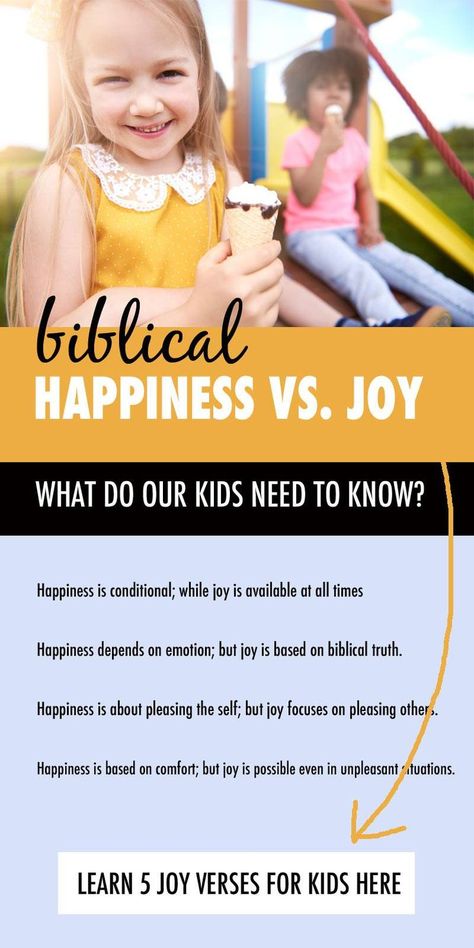
“We are blessed with many different kinds of Bibles these days, and my sons love the Lego Bible and the Follower's Diary: Luke's Story, for example. It is also good to gradually transfer children from the Bible with pictures to a more complete translation, ”said the minister.
5. Memorize key Bible verses.
Mackenzie expressed his suspicion that the memorization of Bible verses is neglected in many homes, but keeping portions of Scripture "in the heart" reflects its value as God's Word.
"In our family we work on memorizing a number of different verses and find that returning to a verse already memorized can sometimes lead to a rediscovery of its truth," he added.
“I don't want to say that helping children study the Bible is always easy. There are such busy days in our family that it is difficult to understand at all whether we have learned anything, and we are faced with the usual task of finding time in the midst of busy schedules, the minister emphasized.
